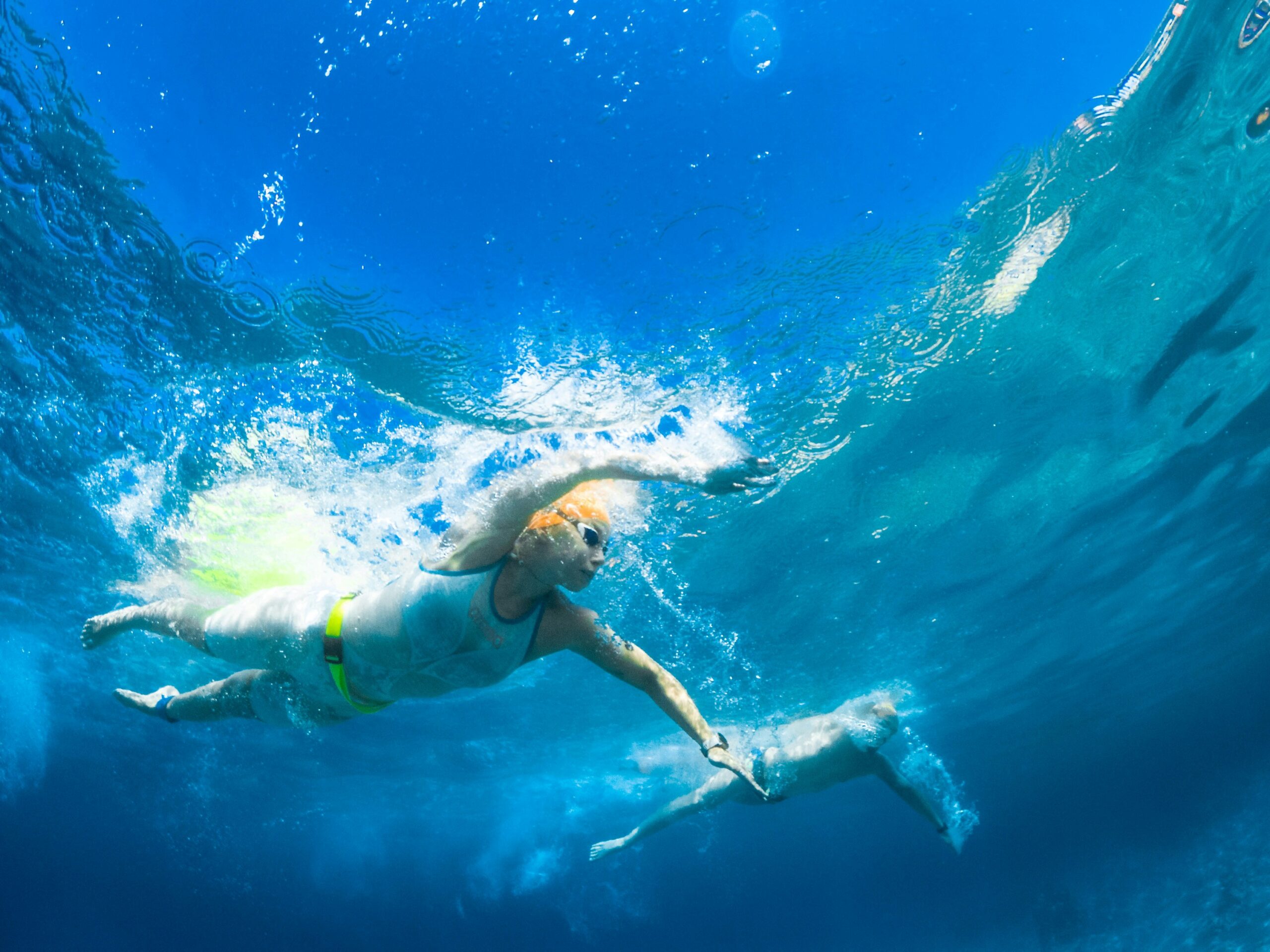Natural health products can support a swimmer’s immunity, recovery, and resilience. Here, I’ll focus on immunity.
Whether you’re diving into a cool lake or logging laps in the ocean, open water swimming is a powerful workout that connects you to nature. But the exposure—cold water, wind, microbes, and intense exertion—can also test your immune system. Plus, swimming is one of the only forms of exercise that can expose us to infectious organisms via skin, mouth, ears, nose AND eyes. That’s why as a nutritionist who’s an avid open-water swimmer, I take care to support my immune system during the outdoor swimming season. Here are my top 5 immune supplement picks from my swim-support toolkit to stay healthy, strong, and ready for the next dip:
1. Vitamin C
Why: Antioxidant protection, immune builder, wound healing
Benefits: Vitamin C helps defend against cold-water stress, supports tissue repair, and shortens illness duration.
Tip: Choose buffered or liposomal forms for better absorption; aim for 500–1000 mg/day.
2. Zinc
Why: Essential for immune function, wound healing and recovery
Benefits: Zinc protects against respiratory infections and supports wound healing (especially after cuts or skin exposure to natural water).
Tip: Zinc bisglycinate is a highly absorbable form of zinc that can be taken at 15–30 mg/day with food.
3. Vitamin D3
Why: Foundational immune support, especially for indoor swimmers
Benefits: This essential nutrient regulates immune response, especially important for swimmers training indoors, in wetsuits, cloudy weather, or colder climates.
Tip: 1000–2000 IU/day, or whichever dose helps you achieve an absolute minimum blood level of 80 nmol/L (Canada). Both regular and vegan forms of D3 are equally bioavaiable to the body, but opt for a dry form capsule instead of a liquid or softgel for longer-lasting potency.
4. NAC (n-acetyl-l-cysteine)
Why: Lung, immune and detoxification support
Benefits: This antioxidant supports production of glutathione–our bodies’ most powerful antioxidant. Strenuous , prolonged exercise tends to tank glutathione levels, making us more vulnerable to infection for a few days afterwards. NAC supports the respiratory system by facilitating the clearing of mucus, and could aid in post-swim recovery—especially if exposed to chlorinated pools, cold air, smoke, or algae.
Tip: Take 600–1200 mg/day, ideally on an empty stomach. Note: NAC has an odour of rotten egg–so don’t fret it that’s what you smell when you open the bottle. This odour tells you it’s fresh!
5. Probiotics
Why: Swimmers unintentionally ingest small amounts of the water they’re swimming in – – which contains microbes that can disrupt gut flora.
Benefits: A balanced microbiome supports overall immunity, especially helpful if swimming in unfamiliar or untreated water.
Tip: Choose multi-strain probiotic capsules with between 10–50 billion CFUs. Alternatively, you can ingest fermented foods daily for a regular dose of healthful lactobacilli bacteria. Choose from sauerkraut, yogurt, kefir or kimchi. In fact, kimchi packs a double punch because it contains beneficial bacteria AND garlic–which is well-established as an anti-microbial food that controls the growth of unfriendly microbes —without disturbing beneficial lactobacilli.
Final Word:
These five supplements can help us swimmers build natural resilience, recover faster, and stay consistent in their training. Whether you’re a pool swimmer exposed to higher concentrations of chlorine or an open-water swimmer who ventures into lakes, rivers and oceans, these supplements can all help your body’s immune system function its best. Combine them with proper hydration, warm layers post-swim, and whole-food nutrition—and you’ll be swimming strong, all season long.
